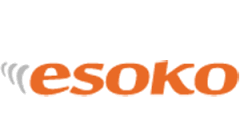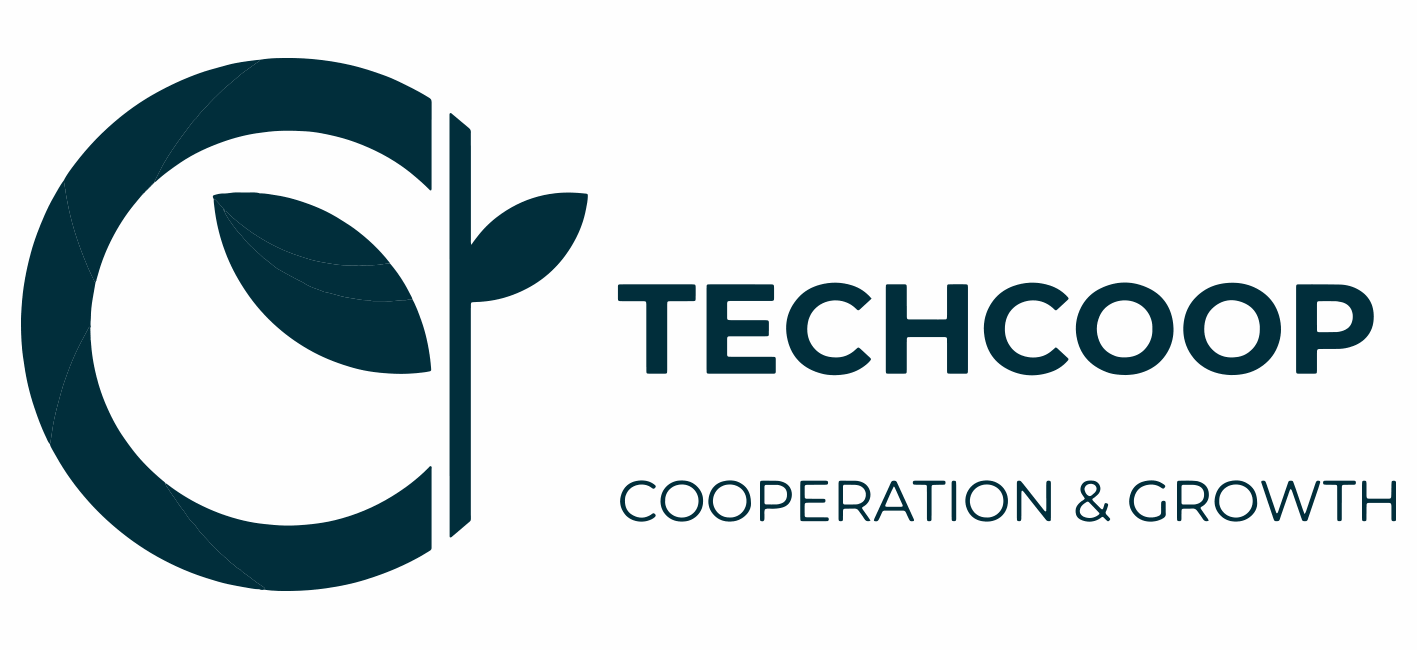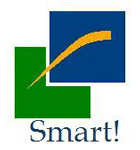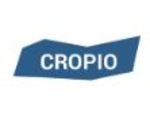Description

Esoko

Techcoop
Comprehensive Overview: Esoko vs Techcoop
Esoko and Techcoop are two distinct entities with different focuses, services, and target markets, but both operate within the broader context of technology solutions.
Esoko:
a) Primary Functions and Target Markets:
Esoko is a technology platform primarily designed to serve the agricultural sector, particularly in Africa. Its main functions involve providing agricultural market information, supply chain tracking, and digital financial services. Through mobile and web applications, Esoko enables farmers, agribusinesses, NGOs, and governments to access critical market information such as crop prices, weather forecasts, and farming tips. This helps improve productivity and profitability in the agricultural sector.
Target markets for Esoko are predominantly smallholder farmers and agricultural organizations in Sub-Saharan Africa. The platform aims to bridge the information gap often faced by rural farmers who have limited access to traditional sources of information and financial services.
b) Market Share and User Base:
Esoko has been a pioneering service in the agricultural information space in Africa. While specific market share figures are not typically disclosed for such niche services, Esoko is regarded as a leading player in the digital agriculture domain in Africa. It has thousands of users, including individual farmers, agricultural cooperatives, and institutional partners across several African countries.
c) Key Differentiating Factors:
- Focus on Agriculture: Esoko’s main differentiator is its specialized focus on providing agricultural information services.
- Localized Content: Esoko offers localized content tailored to the specific needs of the regions it operates in, including local language support.
- Integration with Mobile Networks: It leverages widespread mobile penetration in Africa to deliver its services even in areas with limited internet connectivity.
Techcoop:
(Note: As of the information available till October 2023, "Techcoop" does not refer to a prominent, widely recognized company or technology platform comparable to Esoko. However, below is an illustrative scenario assuming Techcoop were a hypothetical entity.)
a) Primary Functions and Target Markets:
Let's assume Techcoop is a cooperative technology platform with a focus on providing shared technology services for various sectors, including agriculture, education, and small enterprises. Its primary functions might include offering technological support, facilitating cooperative buying/selling methods, and providing shared digital resources among members.
The target markets for Techcoop would encompass cooperatives, small and medium-sized enterprises (SMEs) in different sectors that benefit from pooled resources and cooperative business models.
b) Market Share and User Base:
As a fictional or hypothetical entity, Techcoop's market share and user base would depend heavily on the successful implementation of its cooperative model. It might have a smaller market share compared to large-scale commercial platforms but could have a substantial impact within its niche by addressing the specific needs of cooperative members.
c) Key Differentiating Factors:
- Cooperative Model: Emphasis on cooperative principles and shared ownership could be a distinct competitive advantage.
- Sector Diversity: Unlike specialized platforms, Techcoop might cater to multiple industries, offering broad-based technological solutions.
- Community Focus: More focus on user collaboration, community-building, and mutual benefit rather than profit maximization.
Conclusion:
While Esoko and a speculative Techcoop might both operate within tech solutions, their primary functions, target markets, and differentiating factors are distinct. Esoko is more focused on delivering specialized agricultural information and financial services to smallholder farmers, particularly in Africa. In contrast, a conceptual entity like Techcoop could offer a broader cooperative-based tech platform serving various industries, promoting shared resources, and community development. The actual product offerings, market share, and user base would vary depending on the real-world existence and execution of such concepts.
Contact Info

Year founded :
Not Available
+257 22 28 03 20
Not Available
Burundi
http://www.linkedin.com/company/esokoshop

Year founded :
2022
Not Available
Not Available
Vietnam
http://www.linkedin.com/company/techcoop.vn
Feature Similarity Breakdown: Esoko, Techcoop
To provide a feature similarity breakdown for Esoko and TechCoop, we can examine their common features, user interface (UI) differences, and unique features. However, please note that my responses are based on general knowledge up until October 2023, and for specific details or updates beyond that date, please refer to the companies' official websites or press releases.
a) Core Features in Common
-
Agriculture Market Platforms:
Both Esoko and TechCoop serve as digital platforms aimed at improving agricultural productivity and efficiency by connecting various stakeholders in the agricultural value chain. -
Information Dissemination:
Both platforms provide essential information to farmers and agricultural professionals. This includes market prices, weather forecasts, and agricultural best practices to help them make informed decisions. -
Communication Tools:
They offer communication channels such as SMS notifications or mobile app alerts to ensure that users receive timely updates and critical information right on their mobile devices. -
Data Collection and Analysis:
Both platforms offer tools for data collection, which can then be analyzed to improve farm management practices, supply chain logistics, and to inform policy making. -
User Support and Training:
Each platform provides some form of user support and training to ensure that farmers and other stakeholders can make the most of the technology and information available to them.
b) User Interface Comparison
-
Design and Accessibility:
Esoko often emphasizes user-friendliness with a focus on simplicity and accessibility, ensuring that even those with limited technological experience can navigate the platform. TechCoop might place similar emphasis but could incorporate different stylistic or functional approaches consistent with its brand identity. -
Mobile vs. Desktop:
Both platforms likely prioritize mobile interfaces given the rural and on-the-go nature of their primary user base, but the execution might vary in terms of responsiveness, offline capabilities, and the integration of multimedia content. -
Customization and User Experience:
Depending on their specific operational goals and target audiences, the customization options and user experience features can vary. Esoko, for example, might focus more on integrating local languages and culturally relevant content, whereas TechCoop may emphasize seamless integration with other tech ecosystems.
c) Unique Features
-
Esoko:
- Digital Extension Services: Esoko may have more advanced or specifically designed digital extension services providing advisory support and consultancy directly to farmers.
- Community Engagement Tools: Esoko often features robust community and social engagement tools that encourage peer-to-peer learning and information sharing among farmers.
-
TechCoop:
- Cooperative Management Tools: If TechCoop is focused on cooperative management, it might offer features that help manage cooperative associations, including financial management or collaborative logistics.
- Innovative Tech Integration: TechCoop could integrate more advanced technology solutions such as IoT applications or blockchain technology to enhance traceability and transparency in agricultural supply chains.
In conclusion, while Esoko and TechCoop share several core features tailored to the agricultural sector, their individual offerings may differ based on their specialized focus, unique technologies, and design philosophies. For precise and up-to-date information, exploring each product's website or contacting their sales representatives would be beneficial.
Features

Not Available

Not Available
Best Fit Use Cases: Esoko, Techcoop
Esoko
Esoko is primarily designed for agricultural sectors, focusing on improving communication and data management for farmers, agribusinesses, and other stakeholders in the agriculture value chain.
a) Best Fit Use Cases for Esoko:
-
Agribusinesses and Cooperatives: Esoko is ideal for businesses that need to streamline communication and data flows between different stakeholders, such as farmers, extension workers, and buyers. It facilitates market information dissemination, price alerts, and agricultural advice, making it highly suitable for cooperatives and small-to-medium agribusinesses.
-
Government and NGOs: Projects run by government bodies or NGOs aimed at rural development, enhancing agricultural productivity, or market access for smallholder farmers can benefit significantly from Esoko's tools.
-
Microfinance Institutions in Agriculture: Financial institutions that provide services to farmers can use Esoko to assess risk, gather data, and communicate with their clients more effectively.
d) Industry Verticals and Company Sizes for Esoko:
- Industry Verticals: Primarily agriculture, including crop farming, livestock, and agribusiness supply chains.
- Company Sizes: Small to medium-sized enterprises (SMEs) and organizations, including NGOs and government projects focused on agriculture.
Techcoop
Techcoop seems to be less specifically defined in the context of your question, but I'll assume it refers to a technology platform or cooperative model for developing or distributing technology.
b) Preferred Use Cases for Techcoop:
-
Technology Startups: Startups that require a platform to collaborate on technology projects or need cooperative resources for development and distribution would benefit from Techcoop.
-
Open-Source Projects: Collaborative open-source software development can thrive in a Techcoop environment, given its emphasis on shared resources, transparency, and collaborative engagement.
-
Cooperative Enterprises: Businesses structured as cooperatives, particularly in technology or digital services, might find Techcoop fitting for managing projects and resources collectively.
d) Industry Verticals and Company Sizes for Techcoop:
- Industry Verticals: Technology and software development, digital services, perhaps extending to education technology or IT services.
- Company Sizes: Typically smaller enterprises or startups, particularly those operating as cooperatives or with a focus on open-source collaboration.
In summary, Esoko is best suited for agriculture-focused projects, particularly where communication and data management are critical, whereas Techcoop is more appropriate for collaborative technology projects and cooperative tech enterprises. The choice between the two would depend on the industry focus—agriculture versus technology—and the organizational structure—traditional versus cooperative.
Pricing

Pricing Not Available

Pricing Not Available
Metrics History
Metrics History
Comparing teamSize across companies
Conclusion & Final Verdict: Esoko vs Techcoop
To provide a conclusion and final verdict for Esoko and Techcoop, let's consider each aspect you've outlined:
a) Best Overall Value
Determining the best overall value between Esoko and Techcoop requires an analysis of their core offerings, user needs, pricing, customer service, and additional features.
-
Esoko: Known primarily for its communication and data solutions aimed at agricultural markets, Esoko provides fundamental tools for market information, advisory services, and mobile surveys. The value lies in its ease of access to critical data and ability to empower farmers and agribusinesses in emerging markets.
-
Techcoop: Typically caters to a broader range of applications beyond agriculture, potentially offering more versatile and scalable tech solutions tailored to various industries. Depending on its suite of solutions, Techcoop might appeal to businesses seeking more diversified or customizable tools.
Verdict: If the primary need is agriculture-focused communication and data collection, Esoko might offer more specific value. On the other hand, if broader tech solutions or scalability into other business areas are needed, Techcoop could be the better option.
b) Pros and Cons
Esoko:
- Pros:
- Specialization in agricultural markets.
- Extensive mobile data collection tools tailored for rural and under-networked regions.
- Trusted advisory services enhancing agricultural knowledge and decision-making.
- Cons:
- Narrower focus might not suit businesses outside agriculture.
- Potentially limited in scalability for non-agricultural markets.
Techcoop:
-
Pros:
- Potentially broader range of tech solutions across various industries.
- Likely more scalable for non-agricultural enterprises.
- Might offer diverse integrations and customizability.
-
Cons:
- Might lack the specialized agricultural tools that Esoko offers.
- Could be more complex and costlier depending on the desired customizations and solutions.
c) Recommendations for Users Choosing Between Esoko and Techcoop
-
Assess Industry Focus: Users primarily in the agricultural industry with a need for specialized data collection and advisory services should consider Esoko. Conversely, those looking for broader tech applications or solutions should explore Techcoop.
-
Evaluate Specific Needs: Identify core business needs—whether they are specialized data communication in agriculture or a more generalized tech solution. This will guide the decision towards the product that aligns best with your strategic objectives.
-
Consider Scalability and Integration: For businesses anticipating growth into areas beyond agriculture, Techcoop could offer more conducive long-term scalability. Esoko might be ideal for those focused purely on enhancing agricultural operations.
-
Budget and Cost Considerations: Analyze the cost-benefit balance of each product. Esoko might offer more cost-effective solutions for agricultural needs, while Techcoop may require a larger investment for broader and more flexible solutions.
-
Pilot Testing: If feasible, conduct pilot testing with each platform to understand better how the solutions align with operational workflows and user experiences.
In conclusion, the choice between Esoko and Techcoop ultimately depends on specific business needs, industry focus, and future growth plans. Businesses deeply embedded in agricultural sectors may find Esoko's solutions ideally suited to their needs, while Techcoop could better serve entities requiring scalability and broader tech capabilities.
Add to compare




